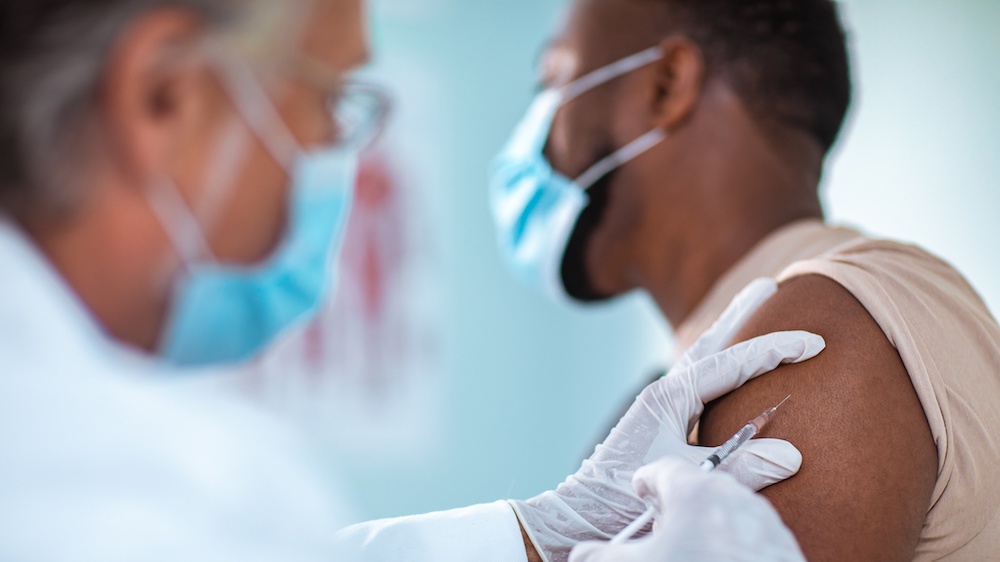If you’re interested in sharing your opinion on any cultural, political or personal topic, create an account here and check out our how-to post to learn more.
____
Now that about 41.4 million vaccinations have been distributed in the U.S. and the Biden administration is working to put their seven-point plan to combat COVID-19 into action, state and local governments nationwide face a new challenge — ensuring that enough people participate in the vaccinations to create the universally desired state of herd immunity. Officials face another uphill battle against the disease with the notion of herd immunity, because they have failed, yet again, to invest in an apolitical, non-commercial communications effort to educate everyday people with factual information that could aid with voluntary vaccine acceptance.
The previous administration missed the opportunity to get ahead of vaccination fears and dispel misinformation. 21% of adults in the United States say they’re “pretty certain they will not get a COVID-19 vaccine and that more information will not change their minds. Public Health agencies can no longer neglect the obligation to arm the public with reliable sources of accessible and relatable information about the vaccine.
Vaccination reluctance and coercion in the United States both have histories rooted in lack of information and distrust. Suspicions around the COVID-19 vaccinations are on the rise as anti-vaxxers engage large numbers of unsure individuals. Historically, the flu vaccination has been met with similar trepidation. During the 2017–2018 flu season, the CDC noted a steep decline in inoculations, with only 37.1% of adults aged 18-49 vaccinated — a 6.2% drop from the previous year. Last year, studies found that about 1 in 15 U.S. parents (6.1%) are hesitant about routine childhood vaccines, and more than 1 in 4 (26%) are unsure about flu vaccines. Many children in the U.S. only receive vaccination because it is compulsory for school attendance.
According to the World Health Organization (WHO), the percentage of people who need to be immune in order to achieve herd immunity varies with each disease. For example, herd immunity against measles requires about 95% of a population to be vaccinated, while for polio, the threshold is about 80%. Experts are unsure of the percentage needed for herd immunity for COVID-19, but assuming even a more modest 70%, we are headed for disaster.
At PCI Media, we have made it our mission to develop campaigns that educate and have a positive impact on individual behavior when it comes to a health crisis. Our campaigns make change because they lead with the power of authentic storytelling and engagement that educates and informs our target audiences about health emergencies and how their individual and collective actions can create the greatest degree of resilience. In response to the 2014 West African Ebola outbreak, we acted swiftly and created the #ISurvived campaign using real stories to spread health messages and combat stigma around the virus. The campaign saw a 15% increase in prevention behaviors, an 18% increase in knowledge about Ebola and 22% of people changed their attitude about Ebola and survivors. The kind of work we and other agencies do is needed now more than ever.
Data analysis from the social listening firm CulturIntel suggests that positive sentiment toward the COVID-19 has declined from 62% in August 2020 to a paltry 57% in late December. If these trends continue, the COVID-19 crisis will be prolonged and will continue to steal American lives and livelihoods.
The science of COVID-19 is new and dynamic, the information individuals need to make decisions best for them must be customized, and the reservations and fears people have about a vaccine developed in record time are real. This is a problem that cannot be fixed by a few influencer videos. Nor, frankly, can politicized government agencies or profit-driven media outlets be trusted with this task. So, where do we go from here?
The marathon ahead calls for a collective effort of releasing trustworthy and accurate information about vaccine results in real-time; responses that provide answers for “what have been the side effects, pros and cons?” and more. Answers that reassure communities and individuals when going through the process of deciding whether or not they will take the vaccine.
____
Meesha Brown is the President of PCI Media Impact.
